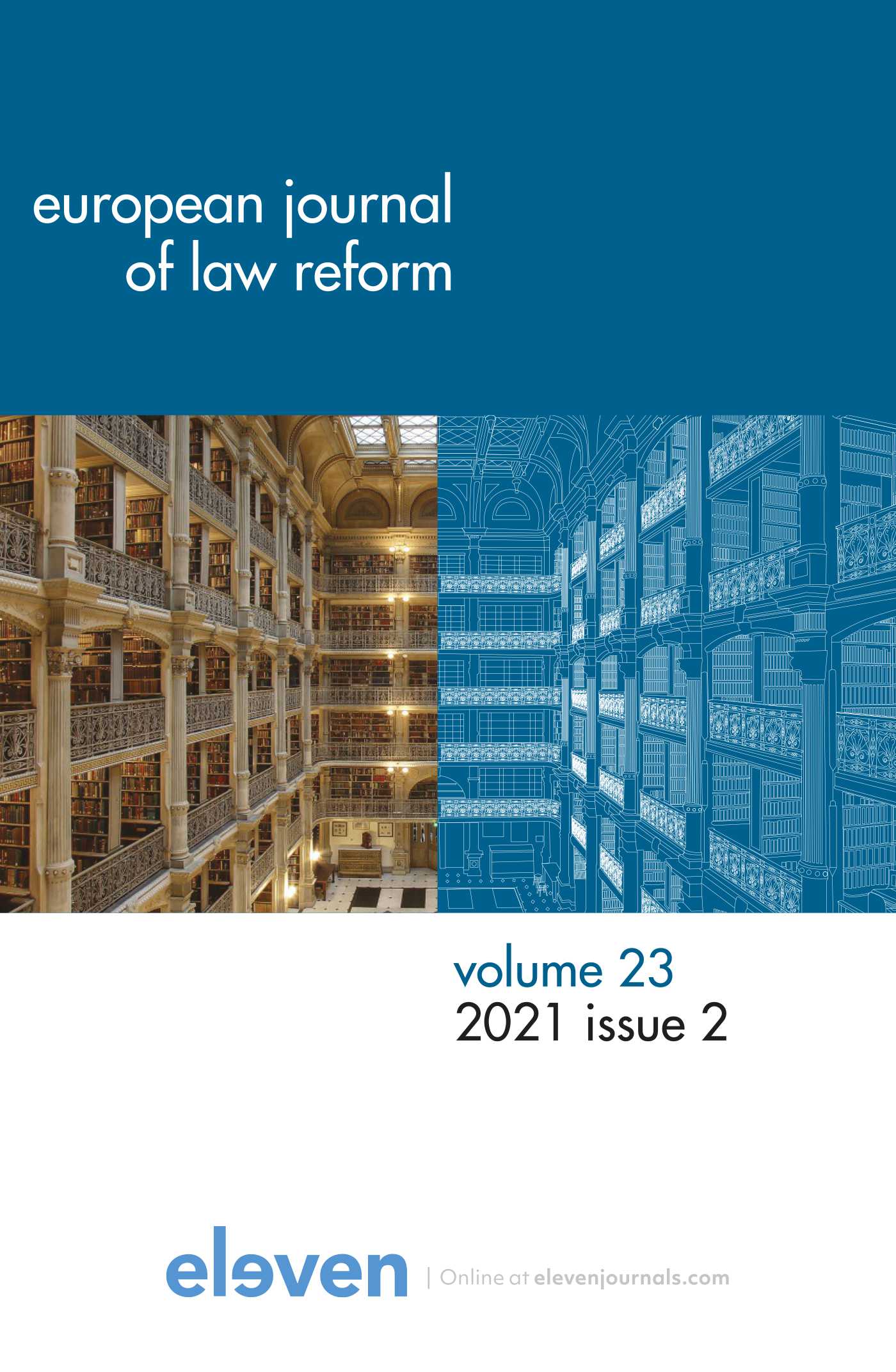|
|


European Journal of Law Reform
About this journalSubscribe to the email alerts for this journal here to receive notifications when a new issue is at your disposal.
| Editorial |
|
| Authors | Enrico Albanesi and Jonathan Teasdale |
| AbstractAuthor's information |
| Article |
|
| Keywords | Parliament of Albania, law reform, Standing Committees, European Integration, Council on the Legislation, National Council for European Integration, Committee on European Integration |
| Authors | Dr. Oriola Sallavaci |
| AbstractAuthor's information |
|
This article throws light on the parliamentary scrutiny of law reform in Albania, which so far has not received sufficient attention in academic literature. The article provides a review of the bodies, procedures and mechanisms for the scrutiny of legal reform, as specified in the Constitution of Albania, Parliament’s Rules of Procedure and other specific statutes. Research on the activities of these bodies during the past three years, as reported by the official sources, throws light on the problematic aspects of their work and enables recommendations to be made which will lead to a more effective role of Parliament in legal reform. This is paramount considering the past few years of political instability in the country, at a time when Albanian’s European Integration is at stake |
| Article |
|
| Keywords | rule of law, law reform, colonialism, authoritarianism, international development |
| Authors | Dr Sara Razai |
| AbstractAuthor's information |
|
This article offers some preliminary thoughts on the issue of international development actors in the promotion of law in the Arab region. Specifically, it reflects on the rule of law concept as a universalizing notion, touted by international organizations and governments alike as a panacea for social ills. The article discusses the act of intervention and the use and promotion of law to achieve a rule of law order in post-conflict or fragile states. It argues that the use and promotion of law by international development actors (and the donors that fund them) – a proxy for building the rule of law – is by no means new to the region. It has also been the central focus of authoritarian and colonial rulers alike. Although they are by no means similar, the three actors are strikingly similar in that they use and promote law under the aegis of building the rule of law, to the general detriment of the masses |
| Article |
|
| Keywords | law reform commissions, legislative process, parliamentary scrutiny, Australia |
| Authors | Jacinta Dharmananda |
| AbstractAuthor's information |
|
In Australia, statutory law reform commissions answer to parliament, albeit through a senior government minister. But once the commission has fulfilled its obligations to parliament, what are the obligations of parliament to scrutinize, or even to consider, the commission’s recommendations? Further, what are its obligations in relation to proposed legislation that contains law reform proposals? This article addresses those questions in an Australian context, with a focus on the generalist law reform commissions. |
| Title |
|
| Keywords | law reform, legislation, Ireland, drafting, parliament |
| Authors | Ciarán Burke |
| AbstractAuthor's information |
|
This article seeks to present a brief outline of the various means through which the draft bills and recommendations drafted by the Law Reform Commission of Ireland and published in its reports are followed up by the Irish Parliament, the Oireachtas. The Commission’s position within the Irish legislative architecture is explained, as is the process through which bills become laws in Ireland. The Commission, it is noted, occupies an unusual role. Although there is no requirement for its publications to result in legislation, ultimately the lion’s share of its output is followed up on in the legislative process in one form or another, with its publications attracting the attention of both the government and opposition parties. The challenges and advantages presented by operating within a small jurisdiction are also outlined, while some thoughts are offered on the Commission’s future. |
| Article |
|
| Keywords | law reform, consolidation, statute law, parliament, Law Commission |
| Authors | Andrew Makower and Liam Laurence Smyth |
| AbstractAuthor's information |
|
The officials responsible for the procedures for scrutiny of proposed legislation in the UK Parliament and for the accuracy and integrity of legislative text describe how the UK Parliament scrutinizes consolidation and law reform bills and the government’s law reform programme, test the proposition that law reform is impeded by a shortage of parliamentary time, and survey ways in which Parliament could encourage and facilitate such legislation. |

 Issue 4
Issue 4